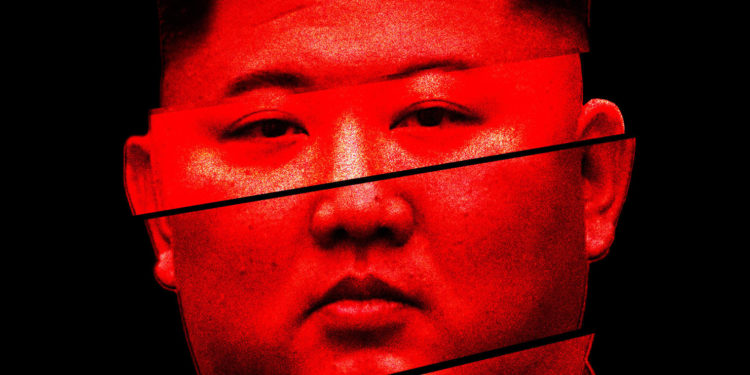
By Josh Smith
SEOUL (Reuters) -The sister of North Korean leader Kim Jong Un warned the United States on Tuesday not to seek comfort in comments by her brother as this would end in disappointment, while a U.S. envoy met South Korea’s president aiming to revive talks with North Korea.
Kim Yo Jong, who is also a senior official in North Korea’s ruling party, released a statement in state media saying the United States appeared to be interpreting signals from North Korea in the “wrong way.”
She was responding to U.S. national security adviser Jake Sullivan, who on Sunday said he saw as an “interesting signal” a recent speech by Kim Jong Un on preparing for both confrontation and diplomacy with the United States.
“It seems that the U.S. may interpret the situation in such a way as to seek a comfort for itself,” she said in the statement, carried by the North’s KCNA state news agency.
“The expectation, which they chose to harbor the wrong way, would plunge them into a greater disappointment.”
North Korea’s nuclear weapons program has been an intractable problem for Washington for years and in trying to change that, President Joe Biden’s administration conducted a review of policy and said it would seek “calibrated and practical” ways to persuade Pyongyang to denuclearize.
The U.S. special representative for North Korea, Sung Kim, has been visiting South Korea to meet senior officials, including President Moon Jae-in.
Moon told the U.S. envoy he would do his best to get inter-Korean and U.S.-North Korea relations back on track and expressed hopes for progress toward denuclearization and peace on the Korean peninsula, his spokeswoman Park Kyung-mee said.
Sung Kim reaffirmed Biden’s support for meaningful inter-Korean dialogue and engagement and said he would “do his best for resumption of U.S.-North Korea talks”, Park said.
On Monday, Sung Kim said he was willing to meet the North Koreans “anywhere, anytime without preconditions” and that he looks forward to a “positive response soon.”
A U.S. official in Washington told Reuters the United States was aware of Kim Yo Jong’s comments and added: “Ultimately, we hope (North Korea) will respond positively to our outreach.
“We will continue to wait to see if these comments are followed up with any more direct communications about a potential path forward.”
The official, who did not want to be otherwise identified, said U.S. policy was not aimed at hostility, but “at solutions and ultimately achieving the complete denuclearization of the Korean Peninsula.”
“The United States is prepared to engage in diplomacy towards that ultimate objective, while working on practical measures that can help make progress along the way.”
‘CLEVER MOVE’
In a sign seen in South Korea as a positive U.S. gesture, the allies discussed scrapping a joint “working group” that analysts say Seoul has seen as an irritant in relations.
Sung Kim and his South Korean counterpart Noh Kyu-duk agreed to “look into terminating the working group,” while reinforcing coordination at other levels, South Korea’s Foreign Ministry said.
The working group was set up in 2018 to help coordinate approaches to North Korea on issues such as denuclearization talks, humanitarian aid, sanctions enforcement and inter-Korean relations, amid a flurry of diplomatic engagement with Pyongyang at that time.
The Moon administration has made building ties with North Korea a top priority and a former aide to Moon told parliament last year the working group was seen as an obstacle to that.
“From a South Korean perspective, this was basically a mechanism for the U.S. to block inter-Korean projects during the Trump years,” said Ramon Pacheco Pardo, a Korea expert at King’s College London.
“It would be a clever political move for the Biden administration to end the group since consultation between Washington and Seoul will take place anyway.”
North Korea has rebuffed U.S. entreaties for diplomacy since Biden took over from Donald Trump, who had three summits with Kim, but failed to persuade him to give up his nuclear weapons.
(Reporting by Josh Smith; Additional reporting by Hyonhee Shin and Sangmi Cha in Seoul and David Brunnstrom in Washington; Editing by Michael Perry, Robert Birsel and Howard Goller)












